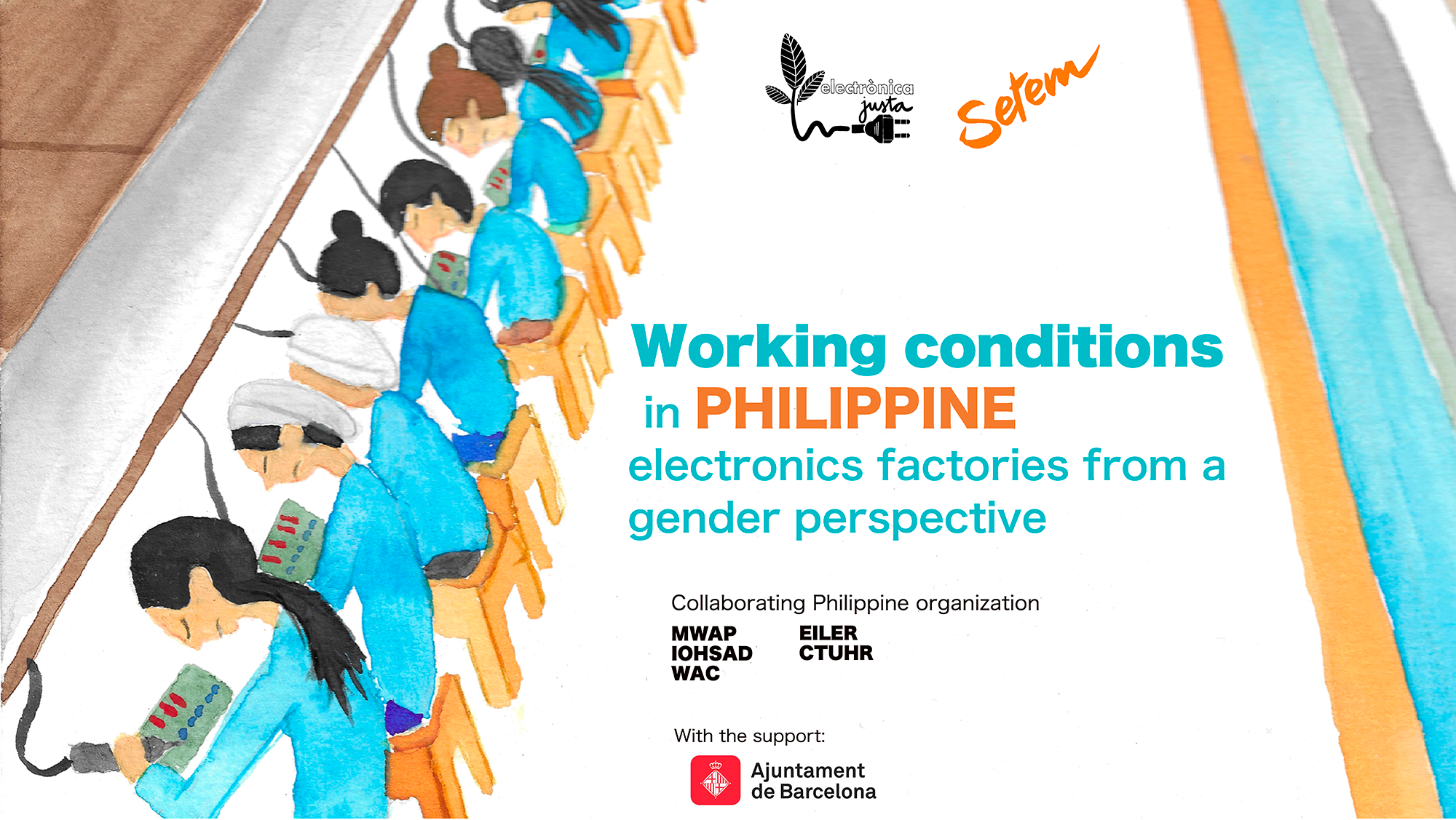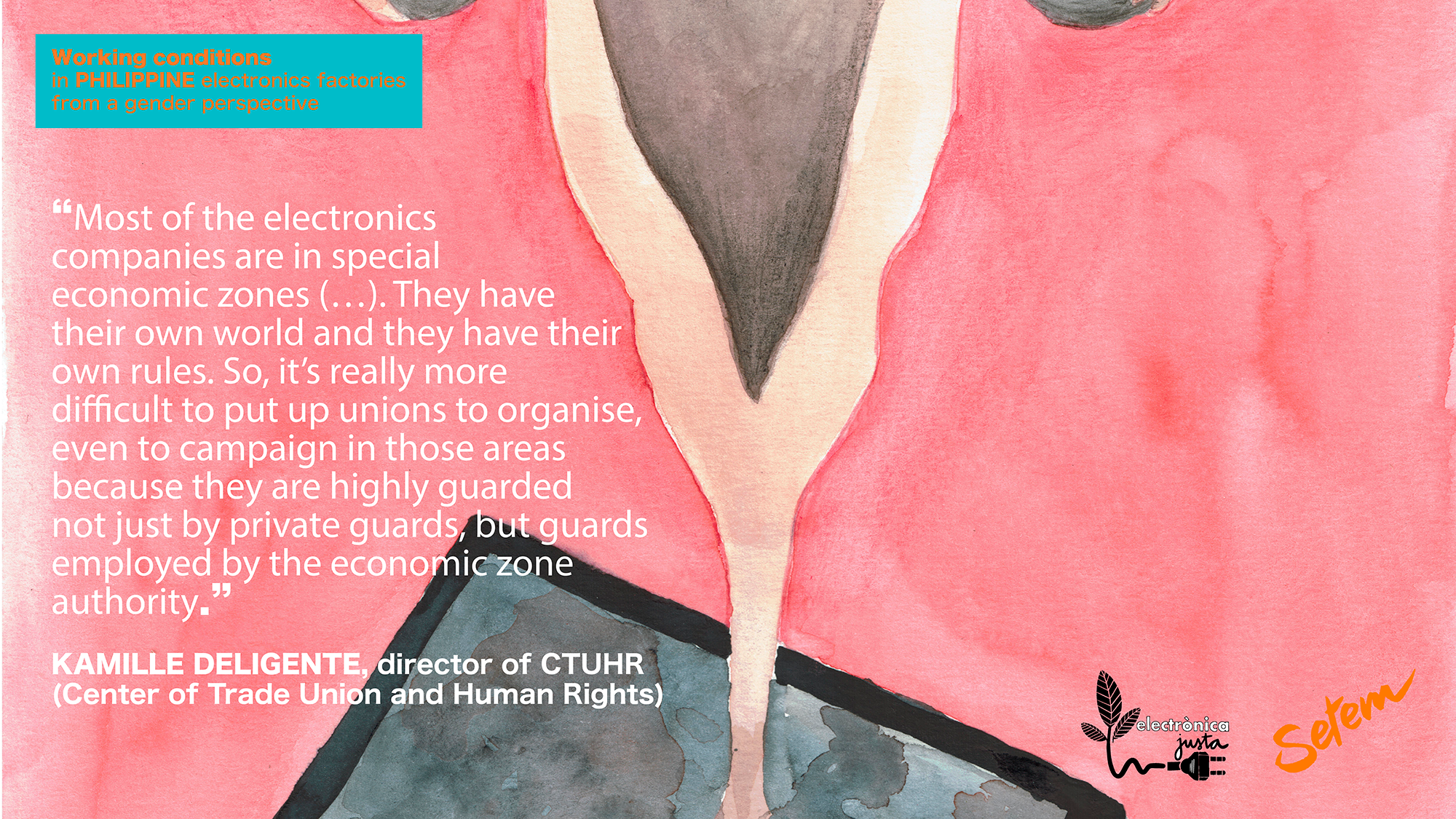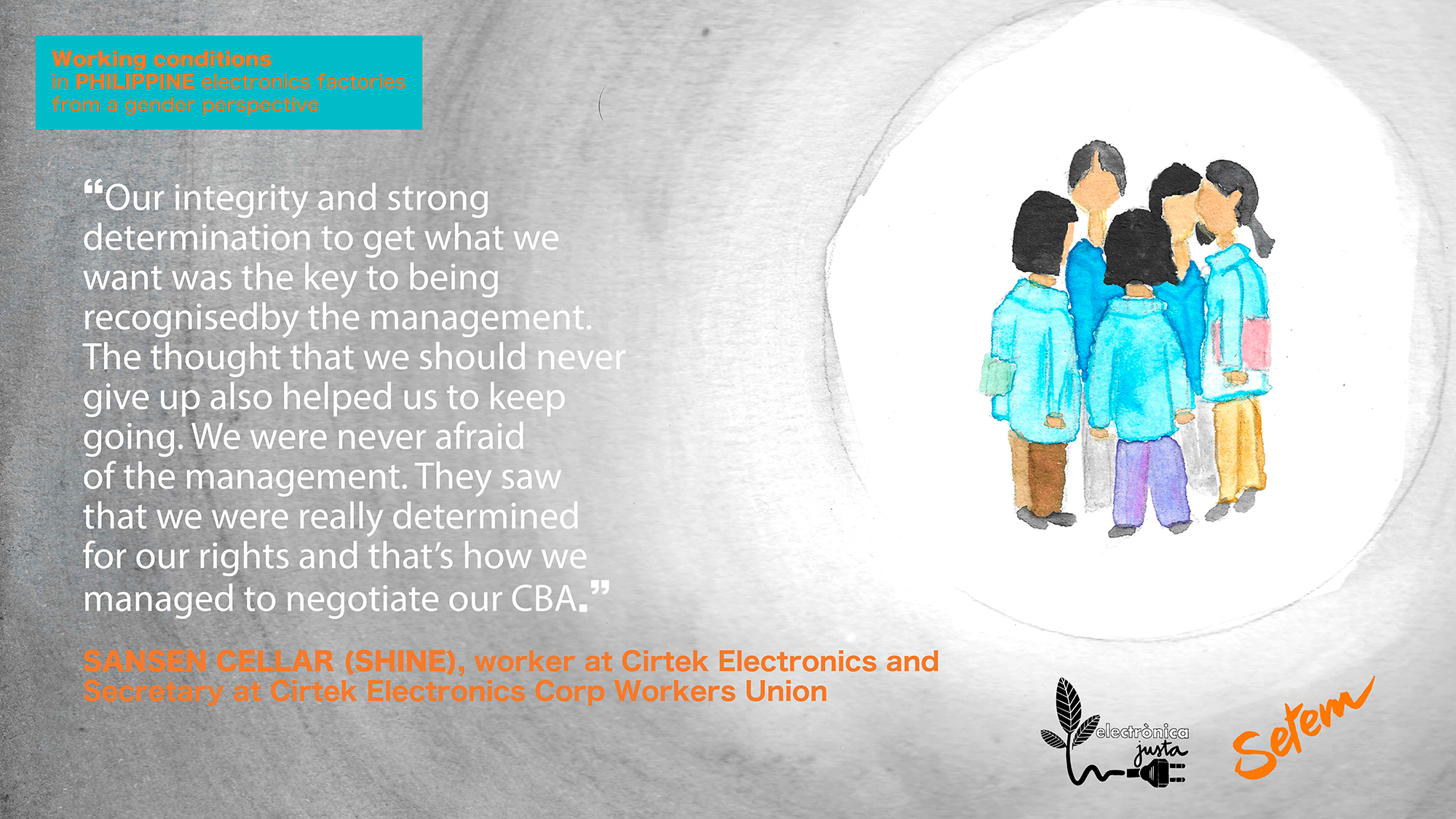
When Jessica first started working in an electronics factory in the Philippines, she received no safety training and no information about the health risks involved in her new job. After over a decade of doing soldering work at the factory, she was diagnosed first with trigger finger. Then, an ovarian cyst. Before she was finally transferred to another unit doing lighter work, she had to undergo various surgical interventions and, ultimately, it was necessary to remove her uterus. Jessica is only one of many women working in electronics factories in the Global South whose health and well-being is traded for the profit of multi-million dollar electronics companies.
920 electronics companies and 261 manufacturing establishments.
SETEM Catalunya, within the Fair Electronics Campaign, presents the investigation “Working conditions in the Philippines’ electronics factories from a gender perspective“, where the working conditions for women workers in electronics factories in the Philippines are brought to light. The report has been prepared with the collaboration of various entities of the Philippines’ civil society, which are dedicated to support, advise and defend workers through interviews with their representatives, as well as other workers from different factories in the sector.

Gender-based violence in the electronics industry
Most electronics factories in the Philippines are located in the Special Economic Zones, which are governed by different rules from the rest of the country, and they make it easier for companies to violate women workers’ rights. However, the electronics sector is among the sectors where there is the greatest risk of modern slavery according to the Global Slavery Index of 2023.
Women such as Jessica are forced to work in factories in the electronic sector becasue of the lack of viable labour alternatives compared to men due to gender inequality, which makes the largest manual labour force in factories fall on women. According to the report, this feminisation of factory work is reinforced by gender patriarchal narratives: many senior officials within this sector consider women to be more docile, less aggressive and less prone to defending their rights than men. For this reason, they prefer them for manual work in assembly chains.
The high demand for work by women is used by employers for their own benefit, imposing poor working conditions for jobs in factories: short-term contracts instead of safe employment, low wages, excessive working hours with minimum or non-existent rest days, or the absence of maternal leave. At the same time, most supervisory posts are assigned to men. Patriarchal narratives and gender stereotypes impose the notion that these functions require qualities percieved as “masculine”, such as assertivity and leadership, and are therefore more suited to men. In addition, in factories there are various health risks, not only because of extensive and repetitive manual work, but also due to the manipulation of toxic chemicals without prior training or adequate safety measures.
In this way, women concentrate on the lowest paid jobs, more manually intensive and more dangerous work in factories.

Union repression and persecution of labour rights defenders
The people who lead or join the unions are harassed, persecuted, stigmatised, or even attacked or murdered. The Philippine human rights organization Karapatan has documented 427 extrajudicial executions between July 2016 and December 2021, including several cases affecting workers’ rights defenders. People who oppose exploitative practices of companies, such as labour activists and union leaders, face abuse and strong harassment in the Philippines. The “red tagging” practice (accusing someone of being a rebel communist and having ties to terrorist groups) has led to the very life of activists being threatened and, ultimately, to the murder of workers who denounced abusive working conditions.
The repression and persecution of Union activists does not just happen in the Philippines, but in all countries where electronic devices are assembled, preventing progress on labour rights issues in the electronics sector. As a result, any electronic device we buy has probably been assembled at the cost of forced labour and abuse, especially for women workers.

The report shows that, in order to improve working conditions for women in the Global South, unions and civil society organisations have to be strengthened and effective policy action needs to be taken. Only if companies are held accountable for the well-being of all workers throughout the supply chain can the electronics industry become fair and ethical.

